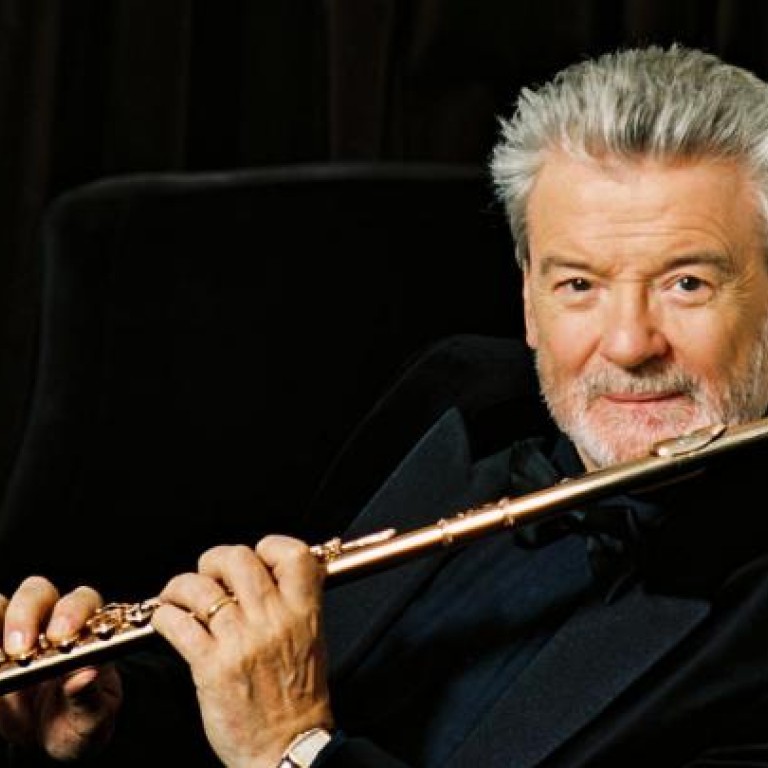
Review: James Galway and the City Chamber Orchestra of Hong Kong
The flautist James Galway received a warm reception on Friday night from a capacity audience that had flocked to hear the man with the golden flute exercise his musical and personal charisma.
The flautist James Galway received a warm reception on Friday night from a capacity audience that had flocked to hear the man with the golden flute exercise his musical and personal charisma.
The eclectic musician is now aged 72, and I probably wasn't the only one in the auditorium to remember sitting glued to the box when he occupied prime-time slots on British television, practically a generation ago. The encores that rounded off this concert set off flashbacks to those fireside evenings: the linking dialogue coated in charming Irish blarney; the simple melodies, meltingly executed (); a nifty jig from the inexhaustible catalogue of "Mr Traditional"; and a quick dose of his hallmark finger fireworks (Johann Sebastian Bach's ).
For a further encore he was joined by his flautist wife, Jeanne Galway, in an arrangement of Mozart's , during which her instrument gave up the ghost in its middle register at what could not have been more embarrassing moments.
This followed for two solo flutes and orchestra, a case of spot the snippet from a bran tub of well-known Mozart tunes stitched together by David Overton.
This might have been engaging for musicians at a pub quiz night, but with more than 80 of them strung out over four movements, the novelty quickly wore off.
The performers must have thought so too, since one movement was quietly axed without announcement; the name of the conductor was similarly unstated, though he rather resembled the lead second violinist in tails.
James Galway stood alone before the orchestra to play Mozart's . With his back to the players and in the absence of clear direction, the performance was troubled from start to finish by instances of poor balance and ensemble; the slow movement also displayed some odd liberties with tuning by Galway.
As a clearly unseasoned conductor in Mozart's , his unimaginative direction produced a performance that is best forgotten.
To say that the crucial element of phrasing was wooden, for example, would be generous.
